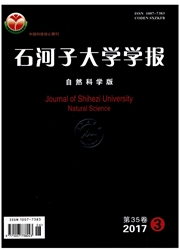

 中文摘要:
中文摘要:
在大田条件下,以新陆早13号和新陆早33号为试材,通过人工调控夜间田间气温,分析了夜间不同温度处理下棉花生理红叶形成期主茎功能叶片的生理生化指标及单铃重的变化,探讨了夜间增温对棉花叶片变红早衰及棉铃发育的影响。结果表明:夜间增温能通过抑制叶片花青素的合成、降低过氧化物酶(POD)及超氧化物歧化酶(SOD)的活性而延缓棉花叶片变红早衰的发生的同时,维持棉花叶片较高的叶绿素含量,提高了生育后期叶片光合速率,进而提高了单铃重。
 英文摘要:
英文摘要:
By determining changes of leaf physiological and biochemical indices and single boll weight under different night temperatures at later cotton growth stage,experiments were carried out under field conditions with test materials Xinluzao13 and Xinluzao33 to explore effects of nighttime warming on cotton leaf reddening and boll development.The results showed that,night warming maintained a higher chlorophyll content,restrained anthocyanin synthesis,reduced POD and SOD activities and improved leaf net photosynthesis at later growth stage of cotton,and thus delayed the cotton leaf reddening and improved single boll weight.
 同期刊论文项目
同期刊论文项目
 同项目期刊论文
同项目期刊论文
 期刊信息
期刊信息
